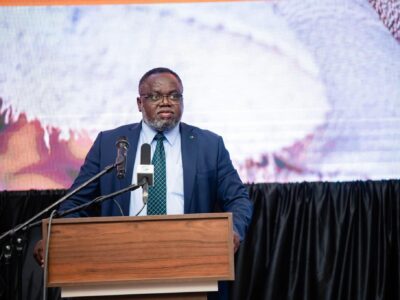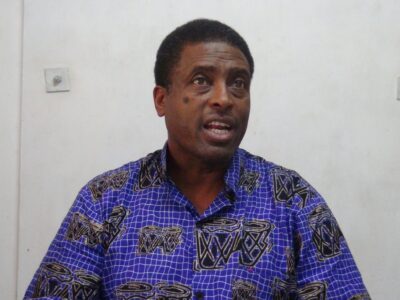The International Monetary Fund (IMF) has advised the Zambian government to recalibrate its copper-based and public investment-driven economic growth model in favor of a more diversified, private investment-led approach.
IMF Resident Representative, Eric Lautier, made this recommendation during a public lecture at the University of Zambia (UNZA) on Thursday evening.
The lecture, titled “Debt Restructuring Underway: What Else Is Needed to Achieve Inclusive and Sustainable Economic Growth for Zambia,” highlighted the need for strategic shifts to reduce Zambia’s economic vulnerability to global commodity price fluctuations.
Lautier said that diversifying the economy and stimulating growth through sectors such as agriculture, energy and tourism was crucial for creating a more sustainable and resilient economy.
“Zambia can leverage its potential to diversify the economy by utilizing sectors such as agriculture, energy, and tourism, among others,” he stated.
In the agricultural sector, Lautier suggested a focus on expanding and improving seedling production, which presented significant opportunities for both domestic consumption and export markets.
He also advised the government to capitalise on the global green transition by investing in renewable energy sources, such as solar and hydro, to develop green electricity.
This would not only meet domestic energy needs but also position Zambia as a potential supplier to the regional market.
Tourism, Lautier noted, is another underutilized asset in Zambia. The country’s rich wildlife heritage and natural beauty offer vast potential to attract more international visitors and boost economic growth.
“For 2024, Zambia’s economic growth has been downgraded to 3.2 percent due to drought conditions.
“However, the country was projected to experience a 6.6 percent growth in 2025,” Lautier said, attributing the expected rebound to favorable rainfall patterns and the implementation of supportive economic policies that encourage full private sector participation.

Lautier also stressed the importance of exploring policy interventions beyond the current debt restructuring framework to achieve the projected economic growth.
He advocated for a revenue-driven fiscal consolidation strategy, which would focus on increasing government revenue rather than solely cutting expenses.
“This approach can involve measures such as implementing tax reforms to boost revenue, improving tax administration, and reducing evasion,” Lautier explained.
He proposed the introduction of new taxes or the adjustment of existing tax rates, along with enhancing public financial management to optimize revenue collection.
Lautier emphasised that a revenue-driven approach was more sustainable and equitable than merely reducing expenditures.
The approach reportedly allows the government to maintain essential public services and investments while still achieving fiscal discipline.
The IMF’s call for a shift in Zambia’s economic strategy comes at a critical time, as the country seeks to navigate its way out of debt and achieve long-term, inclusive economic growth.
WARNING! All rights reserved. This material, and other digital content on this website, may not be reproduced, published, broadcast, rewritten or redistributed in whole or in part without prior express permission from ZAMBIA MONITOR.












Comments